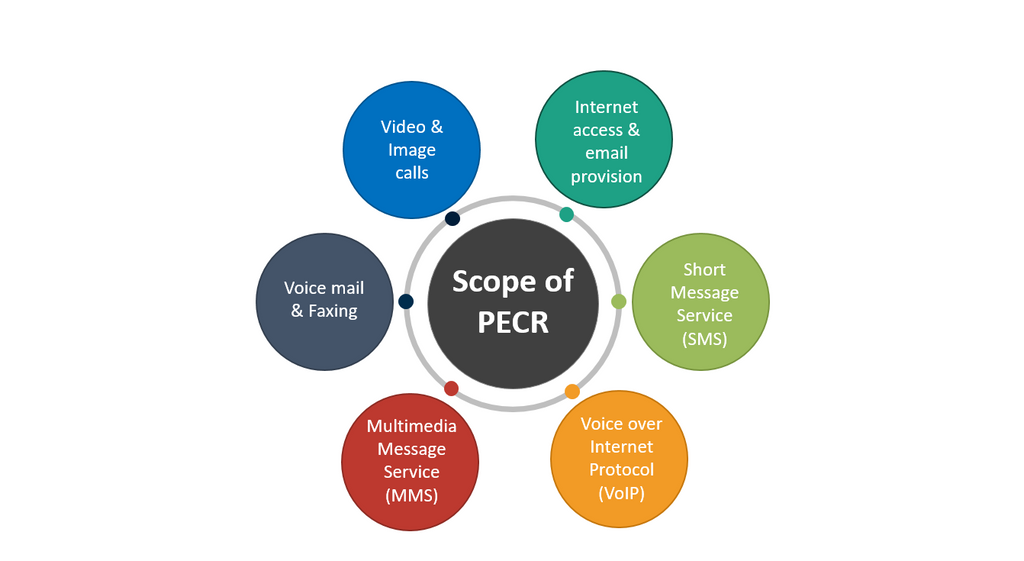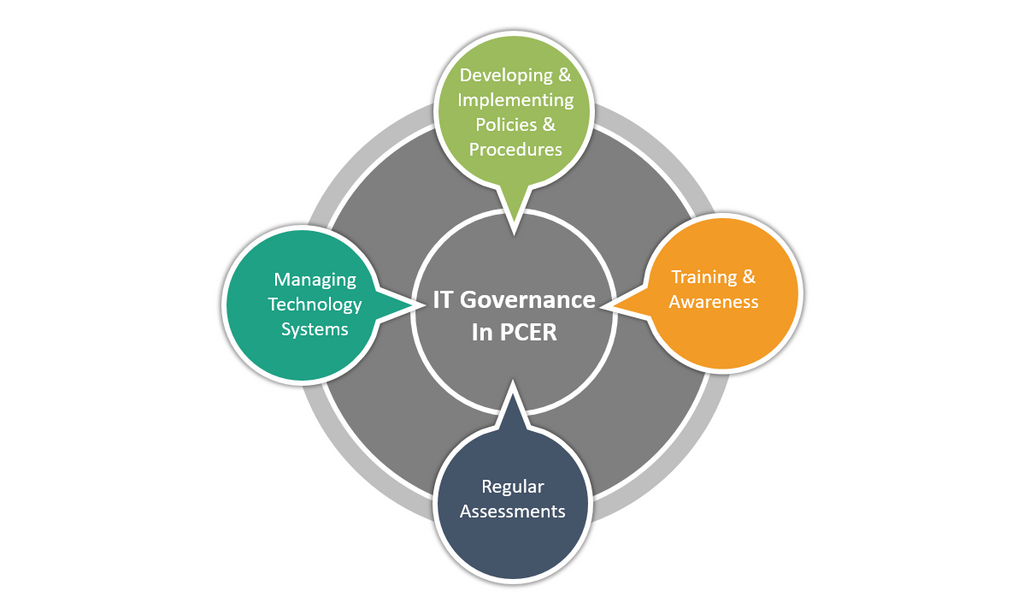Privacy and Electronic Communications Regulations (PECR)
What is PECR?
PECR stands for Privacy and Electronic Communications Regulations. It is a set of laws in the United Kingdom that governs the processing of personal data in the electronic communications sector and provides individuals with specific privacy rights.
It addresses issues such as cookie use, direct marketing, and the storage of communications traffic and location data.
Scope of PECR
PECR applies to electronic communications services, which include services such as:

- Internet access and email provision.
- Short Message Service (SMS)
- Voice over Internet Protocol (VoIP)
- Multimedia Message Service (MMS).
- Voice mail and faxing.
- Video and image calls.
The rules apply to both public and private organisations that offer electronic communication services, as well as those that process data for those services.
The regulations also apply to the use of cookies and similar technologies for storing information on user's devices, as well as the electronic transmission of direct marketing messages such as email, SMS, and automated calls.
The goal of PECR is to protect individuals privacy rights when they use electronic communications services.
To Whom does PECR Apply?
PECR applies to all organisations in the UK that provide electronic communication services to individuals, as well as those that process data for such services. This includes organisations from both the public and private sectors, such as:
- Internet service providers (ISPs).
- Telecommunications companies.
- Email service providers.
- Voice over Internet Protocol (VoIP) providers.
- Mobile phone companies.
- Online marketers and advertisers.
Penalties For PECR
Penalties for noncompliance with PECR can be severe, including:
1.Fines:
The Information Commissioner's Office (ICO), which is in charge of enforcing PECR, has the authority to levy fines of up to £500,000 for serious violations.
2.Prohibitions:
If an organisation is found to be in violation of PECR, the ICO may impose prohibitions, such as prohibiting the sending of direct marketing messages or the use of cookies.
3.Reputational damage:
Organizations that are found to be in breach of PECR may also suffer reputational damage, as consumers may be less likely to trust them with their personal data in the future.
4.Litigation:
Individuals who believe their rights have been violated under the PECR may file a lawsuit against organisations, which can be costly and time-consuming.
It is critical for organisations to understand their obligations under PECR and to take steps to ensure compliance. This can include conducting regular assessments of their data protection practises, providing staff training, and updating privacy policies and cookie notices.
Comparison Of PECR with GDPR
Here is a comparison of PECR and GDPR, highlighting the key differences between the two regulations:
PECR:
- Specifically governs the processing of personal data in the field of electronic communications.
- This section focuses on privacy rights in electronic communications services, such as the use of cookies and direct marketing.
- Fines for noncompliance are lower (up to £500,000).
GDPR:
- Applies to all personal data processing, regardless of industry or technology used.
- Provides a comprehensive framework for the protection of personal data, including individual rights and organisational obligations.
- Fines for noncompliance are higher (up to 4% of a company's global annual turnover or €20 million).
In summary, PECR is a specific regulation that applies to electronic communications services and direct marketing, whereas GDPR is a broader regulation that applies to all personal data processing.
How IT governance Can Help Comply in PCER?
IT governance can assist organisations in meeting PECR requirements by integrating privacy and data protection practises into the overall management and operation of information technology systems.
This can include the following steps:

1.Developing and implementing policies and procedures:
IT governance can assist in ensuring that policies and procedures to govern the collection, use, and storage of personal data in accordance with PECR are in place. This may include cookie policies, direct marketing policies, and the retention of communications traffic and location data.
2.Training and awareness:
IT governance can help raise staff awareness of PECR and ensure that they receive training on the regulations and how they apply to their work. This can help ensure that employees understand the importance of personal data protection and the steps they must take to comply with PECR.
3.Regular assessments:
IT governance can assist organisations in conducting regular assessments of their data protection practises to ensure compliance with PECR. This could include reviewing policies and procedures, testing systems and processes, and carrying out privacy impact assessments.
4.Managing technology systems:
IT governance can assist in ensuring that technology systems are designed and operated in compliance with PECR. To protect personal data, this may involve implementing privacy enhancing technologies such as secure communications protocols and encryption.
Final thoughts on PECR
The Privacy and Electronic Communications Regulations (PECR) is a significant regulation that governs the processing of personal data in the electronic communications sector.
Personal data protection is becoming increasingly important in today's digital age. Organizations must take their PECR obligations seriously and take the necessary steps to ensure full compliance with the regulations.


